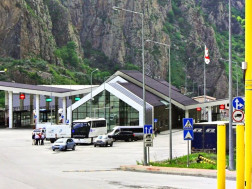While Armenia was recently considered a regional hub for information technology (IT), the situation has changed in recent years as neighboring Georgia has taken a series of initiatives that sharply increased its competitive advantages. Arsen Baghdasaryan, Director of DataArt Armenia, one of the largest IT companies in Armenia, expressed this opinion in an interview with BMG.
Baghdasaryan cited an example of a legislative norm according to which a foreign company with at least 2 years of experience in the information technology sector can open an IT company in Georgia with a stake of no less than 51% and acquire international status.
"IT companies that obtain this status are exempt from paying VAT and dividend taxes and only pay a 5% tax on their personal and corporate incomes. This is a very attractive tax advantage for IT companies, which has led to an influx of foreign capital and qualified personnel into this sector," Baghdasaryan explained, comparing the situation with Armenia, where tax benefits can be obtained by IT companies with staff of no more than 30 people. For them, the income tax rate is reduced from 20% to 10%.
"This tax incentive has led to the IT sector in Georgia growing approximately fourfold over the last 3-4 years. During this time, many international companies have opened their offices in Georgia with large staff," Baghdasaryan said.
He also noted that another factor contributing to the development of the IT industry in Georgia is the loyal attitude of the Georgian authorities towards the use of individual entrepreneurship when concluding contracts with specialists. At the same time, individual entrepreneurs in this field can be subject to a low tax burden of up to 1%.
In Georgia, individual entrepreneurs pay income tax ranging from 1% to 20%. The percentage depends on the annual income and the nature of the activity.
"In Armenia, there is also this option, but IT companies avoid hiring employees as individual entrepreneurs, as this may be considered by the tax authorities as a form of tax evasion," explained the director of DataArt Armenia.
In his view, Georgia is also winning in terms of attractiveness in infrastructure. "Tax incentives alone are not enough to attract companies and qualified personnel to the country. Infrastructure, entertainment, more attractive rental prices for apartments and office spaces, quality education are needed for them. Georgia now has competitive advantages in almost all of these parameters. For example, in Armenia, the IT sector is mainly concentrated in Yerevan. Besides Tbilisi, there are other centers like Batumi, Kutaisi, where there is already built infrastructure, entertainment, which enhances the quality of life and is taken into account by both companies and specialists," Baghdasaryan said.
Meanwhile, he reported that in Armenia, work is currently underway to amend the legislation to create more attractive tax rates for IT companies. "For example, there is a discussion about the option of returning 15% of the income tax paid by the company's employees. That is, the money should be returned to the firm so that it can reinvest it in its development. However, this is all at the level of ideas and discussions, it is not yet known when and in what form they will be adopted," briefly noted the director of DataArt Armenia.
According to the report of the National Bank, in 2023, the revenues of Georgia's IT sector amounted to $784 million. This is 53% or $283 million more than for the same period in 2022.
Meanwhile, according to a study by the consulting company Modex, the turnover of Armenia's IT sector in 2023 amounted to 837 billion drams ($2.12 billion), which is 252 billion drams (over $630 million) or 43% more than in 2022. At the same time, about 87% or 755 billion drams ($1.91 billion) of the turnover of the IT sector were realized in external markets (i.e., exported), and 13% or 114 billion drams - in the domestic market.
















